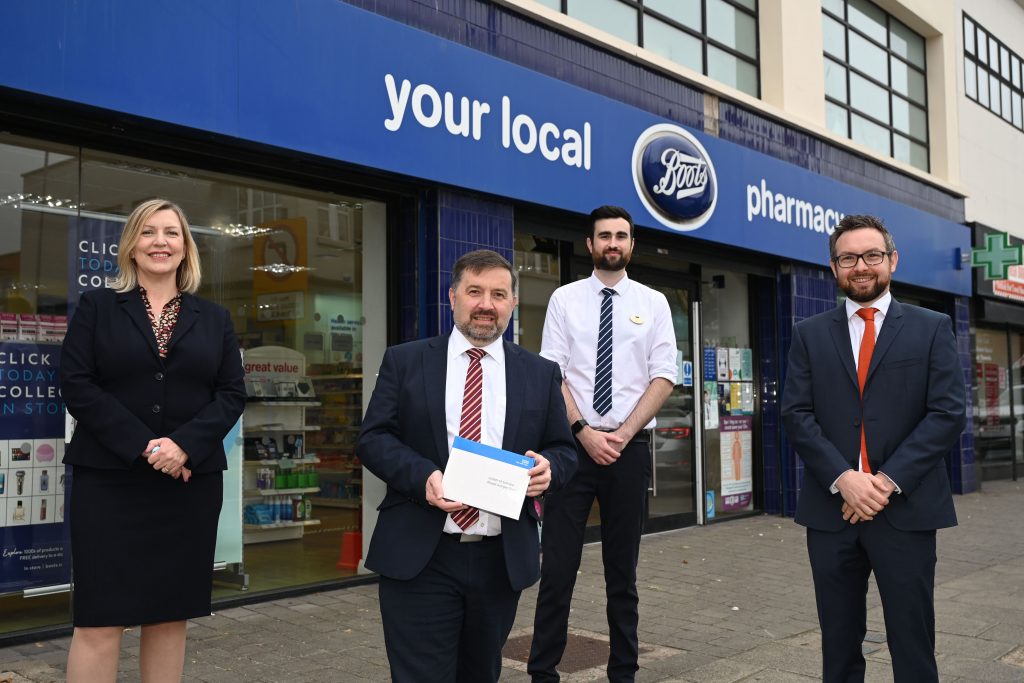Monday 6 September was the launch of this year’s HSC mental and emotional wellbeing campaign ‘Holding On To Hope in a Changing World’.
A five week social media campaign will link World Suicide Prevention Day on Friday 10 September through to World Mental Health Day on 10October.
The six Health and Social Care Trusts in Northern Ireland have joined forces with the Public Health Agency (PHA) to create the campaign to raise awareness of what we can do for ourselves and others to nurture hope in these challenging times. It encourages everyone to hold on to hope to protect our mental and emotional wellbeing, as well as raising awareness of local and national services that are available to help those who need it.
One of the key elements of the campaign is the Hope Quiz. This is a short multiple choice quiz that will determine your current levels of hope. The interactive quiz will direct you to resources, tips and advice that will help improve a sense of hopefulness and promote better mental and emotional wellbeing.
The Hope Quiz and Interactive Campaign Pack will be available on the www.mindingyourhead.info website.
Fiona Teague Mental Health and Suicide Prevention lead at the Public Health Agency said: “We are all living through difficult times – the COVID-19 pandemic has affected each of us differently, some more than others. People’s mental and emotional wellbeing has been challenged in ways they may have never experienced before. The Hope Quiz is a very useful way to check in on ourselves and see where and if we may be struggling. The Campaign Pack will help people to navigate through what they are experiencing and access the right advice and support they need to get them to a better place.
“Research has shown that having a sense of hope helps us to reach our goals in life and is a powerful way of supporting mental wellbeing. People who are more hopeful make healthier lifestyle choices, are more likely to achieve their goals, can cope with and recover from illness much better, and have a stronger sense of meaning and purpose among other tangible benefits.
“Over the coming weeks we will be working collaboratively across the HSC Trusts with the support of the Health and Social Care Board to promote the campaign along with our partners in COVIDWellbeingNI network, the community and voluntary sector and local councils.”

Professor Siobhan O’Neill, Interim Mental Health Champion, said: “Hope is fundamental to good mental health. It is a makes us more likely to overcome barriers exercise agency, and achieve fulfilling goals. It is associated with lower anxiety, and better grades. Importantly, it is a skill that we can learn. By integrating activities that promote hope into our day to day lives we can alter our mindset and do things that previously seemed overwhelming or impossible. Despite the difficulties we have experienced in the past year there remains much to be hopeful for. We have seen communities come together to support the vulnerable in an unprecedented way, and we have learnt that rapid positive change is possible. I would encourage everyone to explore the resources for this campaign. They contain information, and simple evidence-based techniques to promote, hope, gratitude and wellbeing.”
This week also marks World Suicide Prevention Day on Friday 10 September. It is vitally important to remind people that if they or someone they know is experiencing a crisis, that the 24/7crisis helpline Lifeline (0808 808 8000) is available at all times.
Fiona added: “We hope that encouraging people to take the Hope Quiz will give people a chance to think about what their needs are at this time and explore the resources that have been compiled in one place to help prevent people reaching crisis point. We encourage people to recognise the signs in themselves and others and know where they can get help as early as possible.
“It is important to remember that mental health services continue to operate across Northern Ireland at this time. If you are concerned about your physical or emotional wellbeing, you should contact your GP.”
- Visit www.mindingyourhead.info to access the Interactive Campaign Pack and Hope Quiz and COVIDWellbeingNI Hub
- If you, or someone you know, is in crisis and struggling to cope, call Lifeline and speak to a counsellor immediately 0808 808 8000
- Follow #HoldingOnToHope21 for latest campaign information and updates



